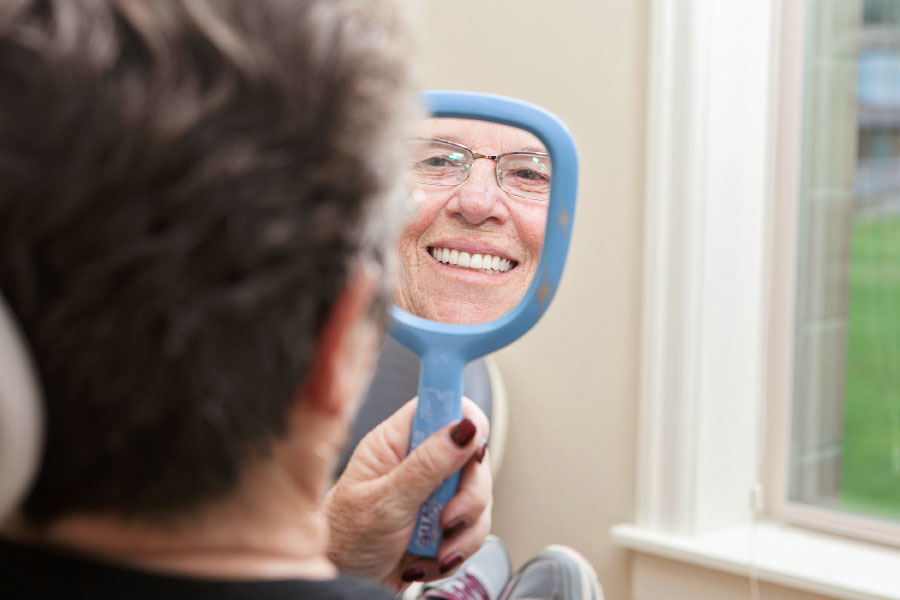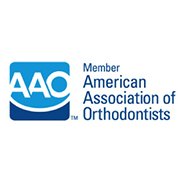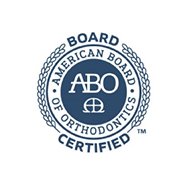Let's talk about your smile.
Get Started
Home / Resources / Dentures / What To Expect

At Light Dental Studios, our commitment to providing comprehensive dental care extends to having an in-house denture lab, ensuring that our patients receive the highest quality service and personalized attention for their denture needs. Our in-house denture lab is a testament to our dedication to convenience, efficiency, and superior craftsmanship.

When you choose Light Dental Studios for your denture needs, you can expect a seamless and collaborative process. Our experienced team of denture specialists works hand in hand with our skilled dental professionals to create dentures that are not just functional but also aesthetically pleasing. This close coordination ensures that your dentures are custom-fit to your unique oral anatomy, providing the comfort and confidence you deserve.
What To Expect

At Light Dental Studios, our commitment to providing comprehensive dental care extends to having an in-house denture lab, ensuring that our patients receive the highest quality service and personalized attention for their denture needs. Our in-house denture lab is a testament to our dedication to convenience, efficiency, and superior craftsmanship.

Our patient at Light Dental Studios is wearing her dentures.
When you choose Light Dental Studios for your denture needs, you can expect a seamless and collaborative process. Our experienced team of denture specialists works hand in hand with our skilled dental professionals to create dentures that are not just functional but also aesthetically pleasing. This close coordination ensures that your dentures are custom-fit to your unique oral anatomy, providing the comfort and confidence you deserve.
What does the in-house denture lab mean?
One of the key advantages of our in-house denture lab is the speed at which we can deliver results. Traditional denture fabrication can involve multiple visits and lengthy wait times. However, with our in-house lab, we significantly reduce the turnaround time, allowing you to enjoy your new smile sooner.Moreover, our denture specialists use cutting-edge materials and techniques to craft dentures that are not only comfortable but also highly durable. We understand that your dentures play a crucial role in your daily life, from eating to speaking and smiling. That's why we go the extra mile to ensure that your dentures are built to withstand the rigors of everyday use.
At Light Dental Studios, we believe that your smile should reflect your unique personality and preferences. Therefore, our in-house denture lab offers a range of options for customization, from the shade and shape of your dentures to any additional features you may desire. Our goal is to ensure that your dentures look and feel as natural as possible, so you can confidently face the world with a smile.
What To Expect After Immediate Dentures
UPPER DENTURE FIT – Your new denture may feel awkward or bulky. This is normal, and you will
eventually become accustomed to wearing it. Initially, you may be asked to wear your
dentures all the time. Although this may be uncomfortable at first, it’s the quickest way to
identify areas that may need adjustments.
LOWER DENTURE FIT – Unlike upper dentures that has the entire roof of the mouth to provide surface area for retention, your lower denture relies solely on your jaw to keep it in place. This is due to tongue space limiting the surface area to which the denture can rest. This means lower dentures are less retentive without natural teeth or implants to use as support. Therefore, if restoring natural teeth as anchors is not an option, implant-supported lower denture is recommended. However, if this is not a viable option for you, you may need denture adhesives to keep the lower in place to minimize rocking, shifting, and/or dislodging during function.
DENTURE TEETH – Since full dentures rely on soft tissue (not teeth or bone) for support, the denture teeth are limited in what they’re capable of in terms of function. Front teeth are for esthetics and speech more so than for chewing. If you have both upper and lower complete dentures, it is recommended that you rely on back denture teeth only for chewing (see Diet section below for details). Attempting to use the front denture teeth to bite a sandwich, for example, may lead to dislodging the dentures out of your mouth as they are not anchored to anything but soft tissue and so it can move when too much pressure is applied to the front rather than back
SORE SPOTS – If the denture puts too much pressure on a particular area, that spot will become sore. Your dentist will adjust the denture to fit more comfortably. After making adjustments, your dentist will probably recommend that you take denture out of the mouth before going to bed and replace it in the morning.
LOWER DENTURE FIT – Unlike upper dentures that has the entire roof of the mouth to provide surface area for retention, your lower denture relies solely on your jaw to keep it in place. This is due to tongue space limiting the surface area to which the denture can rest. This means lower dentures are less retentive without natural teeth or implants to use as support. Therefore, if restoring natural teeth as anchors is not an option, implant-supported lower denture is recommended. However, if this is not a viable option for you, you may need denture adhesives to keep the lower in place to minimize rocking, shifting, and/or dislodging during function.
DENTURE TEETH – Since full dentures rely on soft tissue (not teeth or bone) for support, the denture teeth are limited in what they’re capable of in terms of function. Front teeth are for esthetics and speech more so than for chewing. If you have both upper and lower complete dentures, it is recommended that you rely on back denture teeth only for chewing (see Diet section below for details). Attempting to use the front denture teeth to bite a sandwich, for example, may lead to dislodging the dentures out of your mouth as they are not anchored to anything but soft tissue and so it can move when too much pressure is applied to the front rather than back
SORE SPOTS – If the denture puts too much pressure on a particular area, that spot will become sore. Your dentist will adjust the denture to fit more comfortably. After making adjustments, your dentist will probably recommend that you take denture out of the mouth before going to bed and replace it in the morning.
DIET – Denture teeth are different from natural teeth in that they rest on your gums (soft tissue)
rather than anchored to your jaw (hard tissue). It is estimated that natural teeth can withstand
6 or more times the chewing force compared to denture teeth. As a result, chewing function is
significantly diminished compared to that of nature teeth. Eat soft foods and cut foods into
small pieces before placing them on the back-denture teeth for chewing. Attempting to use
front denture teeth may result in dislodging it from the mouth. Avoid sticky and hard foods.
Always thoroughly rinse the denture before placing it in your mouth after each meal.
SPEECH – If you find it difficult to pronounce certain words, practice reading out loud. Repeat the words that give you trouble. With time, you will become accustomed to speaking properly with your denture.
HOME CARE – Remove dentures when going to sleep after 2-3 weeks. Massage your gums nightly to improve blood circulation after wearing your denture during the day. Clean your dentures daily to avoid permanent stain formation. A denture could lose its proper shape if it is not kept moist. Store them in a case with a few drops of water to keep it moist. Look for denture cleansers with the American Dental Association Seal of Acceptance at your local drug store.
SPEECH – If you find it difficult to pronounce certain words, practice reading out loud. Repeat the words that give you trouble. With time, you will become accustomed to speaking properly with your denture.
HOME CARE – Remove dentures when going to sleep after 2-3 weeks. Massage your gums nightly to improve blood circulation after wearing your denture during the day. Clean your dentures daily to avoid permanent stain formation. A denture could lose its proper shape if it is not kept moist. Store them in a case with a few drops of water to keep it moist. Look for denture cleansers with the American Dental Association Seal of Acceptance at your local drug store.

Your life is always busy and you can't make time for your dental visit. Light Dental Studios now offers same day, Saturday, and evening appointments.
Find Our Dentists Near You
Find Our Dentists Near You
Be in the know
Frequently Asked Questions

General Information
Do I need a referral from my regular dentist to access in-house specialty services at Light Dental Studios?
No, you do not typically need a referral. You can directly schedule an appointment with our in-house specialists for consultations and treatments.
What are the advantages of choosing in-house specialty services at Light Dental Studios over external providers?
Our in-house specialties offer convenience, coordinated care, and a familiar, comfortable environment. You can receive comprehensive dental services from a trusted team under one roof.
What areas do you serve?
Our 22 locations are spread across the Puget Sound area including Auburn, Bellevue, Bonney Lake, Burien, Covington, Fircrest, Kent, Lacey, Lakewood, Lynnwood, Maple Valley, Lilly Road in Olympia, Olympia, Pacific Avenue in Parkland, Puyallup, Orthodontics in Puyallup, Renton, Ruddell Road in Lacey, 6th Avenue in Tacoma, Tacoma Mall Boulevard in Tacoma, and University Place to provide easy access to quality dental care.
Can I request a consultation or learn more about in-house specialties at Light Dental Studios online?
Yes, you can easily request a consultation or find more information about our in-house specialties on our website or by contacting our office.
In-House Specialties
What is Dental Sleep Medicine, and how can it benefit me?
Dental Sleep Medicine specializes in treating sleep-related breathing disorders like sleep apnea. It offers solutions to help you achieve better sleep, improved health, and increased quality of life.
How does Light Dental Studios' in-house denture lab enhance my denture experience?
Our in-house denture lab ensures faster turnaround times for fittings, adjustments, and repairs, providing you with well-fitting, comfortable dentures without lengthy wait times.
What orthodontic treatments and braces options are available at Light Dental Studios?
We offer a range of orthodontic treatments, including traditional braces and clear aligners, such as Invisalign, to address alignment issues and create a straight, healthy smile.
What services are provided by Light Dental Studios' Implants and Periodontics specialists?
Our periodontists offer dental implant procedures to address tooth loss and provide periodontal treatments to manage gum disease, ensuring optimal oral health.
What types of oral and maxillofacial surgeries are performed at Light Dental Studios?
Our oral surgeons perform a variety of procedures, including tooth extractions, wisdom teeth removal, corrective jaw surgeries, and more, to address dental and facial concerns.
Is Dental Sleep Medicine covered by dental insurance, and what about other in-house specialties?
Coverage varies by insurance plans. We recommend contacting your insurance provider to understand your specific coverage for each specialty.
How do I know if I have a sleep-related breathing disorder like sleep apnea?
Common symptoms include loud snoring, frequent waking during the night, excessive daytime sleepiness, and difficulty concentrating. A sleep study or consultation with our Dental Sleep Medicine specialist can provide a definitive diagnosis.
Disclaimer: Please note that the provided information above is based on general knowledge, and it's always recommended to consult with our doctors for personalized advice and recommendations regarding your or your child's specific dental needs and conditions. For any questions or concerns, please call our office.



















































